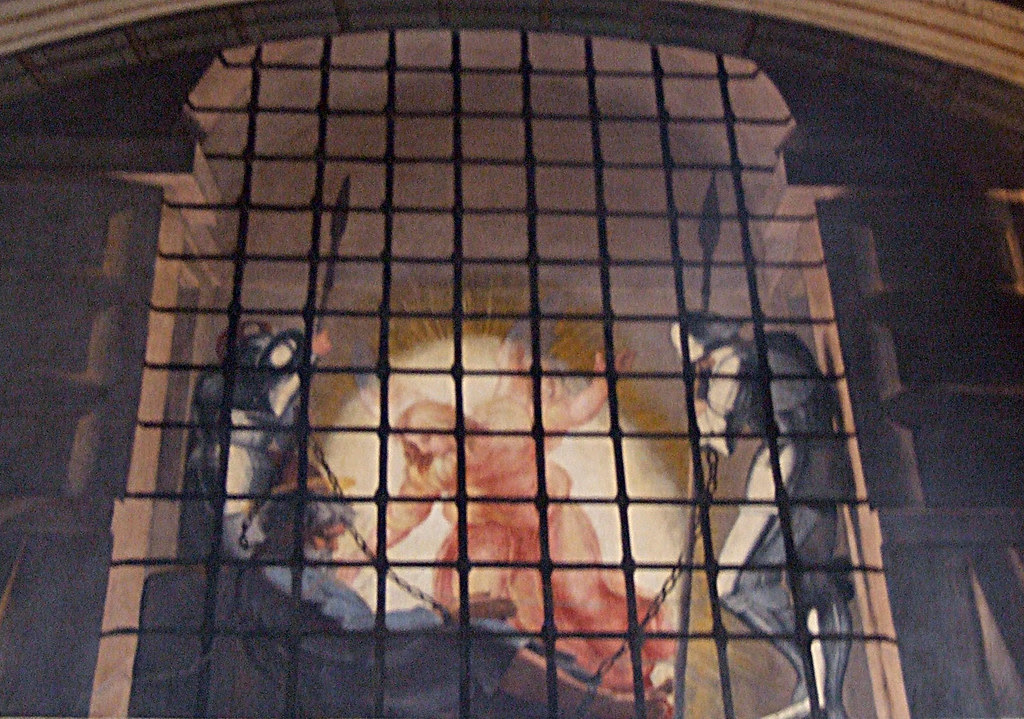| Act 12 Judaism was one of the 1st century religions tolerated by the Roman Empire. As Christianity comes into its own, Hellenizes, and is cut adrift from Judaism, it loses protected status. Marcus Aurelius, Lucian, and Celsus scorn Christianity because of its subversive effect on the empire, and its growing prestige within the ranks of the Roman military. The deepening of antipathy between Church and State are underscored as Herod Agripa, following in his father’s footsteps, stretched out his hand to do evil, as unjust rulers often do. With a few words or the stroke of a pen, the powerful are able to oppress. Herod Agripa’s father, Herod the Great, had previously killed John the Baptizer, and male children in a region near Bethlehem where a rumored king had been born, and several members of his own family, including his wife Mariamne. Like father like son. Herod Agripa has murdered James, son of Zebedee and the Church’s second martyr, and intends to kill Peter, whom he has imprisoned until he can make a good show of it. |

| God miraculously delivers Peter from prison, causing “no small commotion” among the guards, whom, of course, an aggrieved Herod swiftly puts to death. He is a tawdry fellow, this Herod, as those who rise to power without adequate character so often are. Luke’s account of Herod’s demise is a variant of a tradition found in Josephus (Antiquities, 19:8:2). In Josephus’ account the sun’s reflection from Herod’s armor makes him look like a god and brings acclaim he does not merit. In Luke’s account, representatives of the starving people of Tyre and Sidon flatter Herod, who receives their adulation as though he deserved acclaim. God strikes Herod with worms, and he dies. Rhoda the maid brings a bit of levity our way. When miraculously liberated Peter turns up at the door of a leader of a house-church named Mary, Rhoda leaves Peter standing at the door. “It’s his angel,” she tells those inside, not unreasonably assuming Peter has met his earthly end at the hands of Agripa’s minions. “You’re out of your mind,” those gathered inside tell Rhoda, even as Peter continues knocking on the door. Most of us are Rhoda, disinclined to trust the power of God above the more observable power of political leaders. We’ll ignore the knocking at our door, the messenger bearing word that a higher authority with greater claim on our allegiance than any earthly sovereign is acting on our behalf. The glistening of Herod’s armor, his false promises and need for adulation, captivate many. Herod is eaten by worms, “but the word of God continued to advance and gain adherents.” Knock, knock. Grace and peace, The Reverend Canon George F. Woodward III Rector Of the Reign of Christ “Almighty and everlasting God, whose will it is to restore all things in your well-beloved Son, the King of kings and Lord of lords: Mercifully grant that the peoples of he earth, divided and enslaved by sin, may be freed and brought together under his most gracious rule; who lives and reigns with you and the Holy Spirit, one God, now and for ever. Amen.” The Book of Common Prayer pg. 254 Previous Reflections may be found on the parish website StPaulSMA.com under ‘Blogs’ here. YouTube postings are available here. Previous editions of THE EPISTLE can be found here. |

| St. Paul’s Anglican Church Calzada del Cardo, 6 Centro 37700, San Miguel de Allende, Mexico 415.121.3424 www.StPaulSMA.com |
